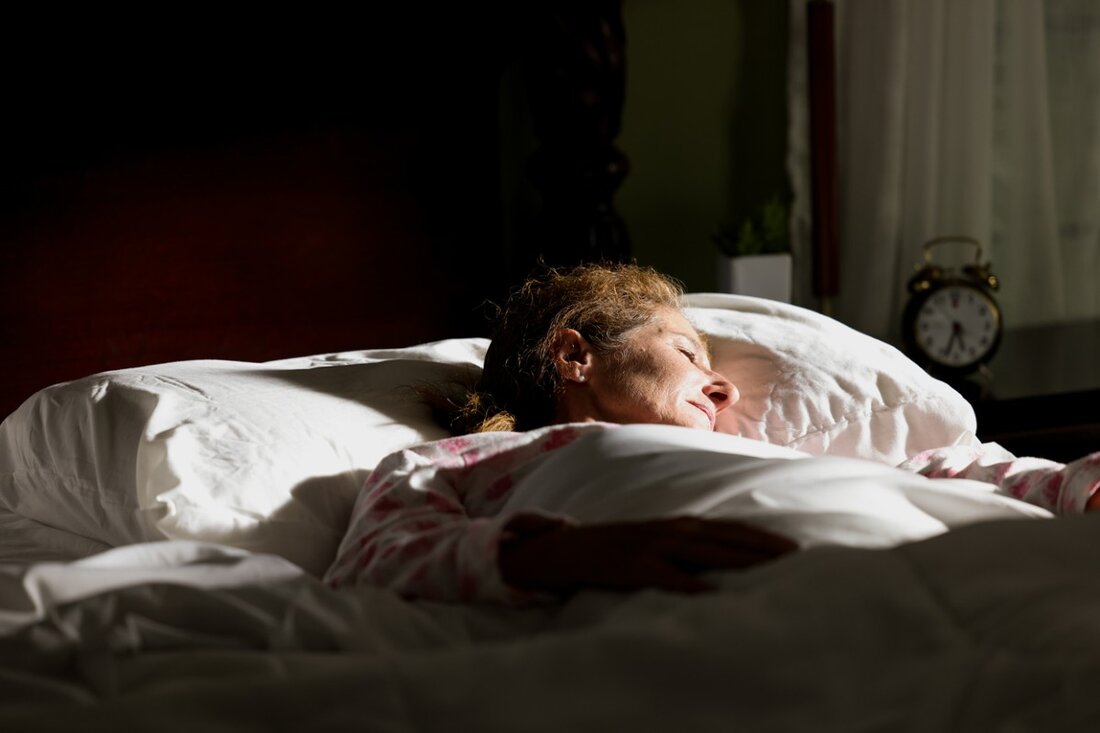The brain uses deep sleep to heal life-threatening injuries
After a heart attack, the brain activates immune cells that promote deep sleep to support healing and reduce inflammation.

The brain uses deep sleep to heal life-threatening injuries
After one heart attack 1, which involved both mice and humans, shows. This deep sleep aids recovery by... Inflammation in the heart decreased, the study found.
The results, published today in the journal Nature, could Treating people after a heart attack influence, says co-author Cameron McAlpine from the Icahn School of Medicine at Mount Sinai in New York City, who studies immune function in the cardiovascular and nervous systems. “Adequate sleep and rest after a heart attack are important for long-term healing of the heart,” he emphasizes.
The implications of the study transcend Heart attacks beyond that, says Rachel Rowe, a sleep and inflammation specialist at the University of Colorado Boulder. "With any type of injury, the body's natural response is to promote sleep so it can heal," she explains.
The heart needs sleep
Scientists have known that for a long time Sleep and cardiovascular health are linked. For example, people who sleep poorly have a higher risk of developing high blood pressure than good sleepers. Nevertheless, it was investigated how cardiovascular diseases affect sleep and it is less researched.
To learn more, the authors induced heart attacks in mice and examined their brain waves. The researchers found that these mice spent much more time in Sleep waves a phase of deep sleep that is associated with healing processes than mice without a heart attack.
Next, the authors wanted to understand what caused this effect. An obvious focus point were the brain structures that control sleep, notes McAlpine. After a heart attack, immune cells trigger a massive increase in inflammation in the heart, and the researchers wanted to know whether similar immune changes also occurred in the brain.
The team found that after a heart attack, immune cells called monocytes invaded the mice's brains. These cells produced large amounts of one Protein called tumor necrosis factor (TNF), which plays an important role in regulating inflammation and also promotes sleep.
To confirm that these cells were linked to increased sleep, the researchers prevented monocytes from accumulating in the rodents' brains. As a result, "the mice no longer had this increase in slow-wave sleep after their heart attack," McAlpine explains, supporting the theory that the influx of monocytes into the brain contributes to the increase in sleep after the heart attack. Similar experiments confirmed the role of TNF as a messenger for sleep-inducing brain cells.
Sleep as a path to recovery
To understand the purpose of extra sleep, researchers repeatedly interrupted slow-wave sleep in mice that had suffered a heart attack. The team found that these mice had more inflammation in the brain and heart and had a much worse prognosis than mice that were allowed to sleep undisturbed after the heart attack.
The authors also examined people who... acute coronary syndromes had suffered, a term for illnesses, including heart attacks, that are caused by a sudden reduction in blood flow to the heart muscle. People who reported poor sleep in the weeks following such an event had a higher risk of developing heart attacks and other serious cardiovascular problems in the next two years than those who slept well.
Given the findings, "physicians need to educate patients about the importance of a good night's sleep" after a heart attack, Rowe says. This should also be taken into account in the hospital, where tests and procedures should ideally be carried out during the day to minimize sleep disruption.
She adds that the results underscore the bidirectional relationship between sleep and the immune system. “When your grandmother says, ‘If you don’t get enough sleep, you’ll get sick,’ there’s a lot of truth in that.”
-
Huynh, P. et al. Nature https://doi.org/10.1038/s41586-024-08100-w (2024).

 Suche
Suche
 Mein Konto
Mein Konto
